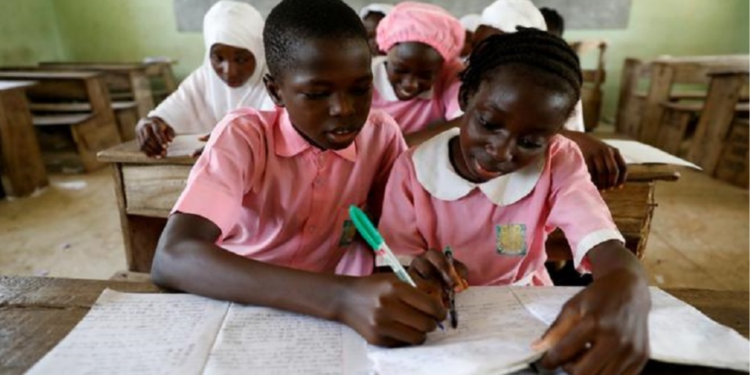Nigeria’s Universal Basic Education Commission (UBEC) has said that there are over 45 million children currently in primary schools across the country.
This was disclosed by Dr Hamid Boboyyi, the Executive Secretary of the Commission, during a one-day meeting between UBEC and the organised private sector, in Abuja on Monday.
Nairametrics gathered that the one-day meeting was focused on “Promoting partnership with the organised private sector.”
In the event held in Abuja, Boboyyi disclosed to the organised private sector that the N100 billion the Federal Government spent annually on basic education was no longer sufficient to run basic education in the country.
UBEC’s call for private sector partnership in basic education
Boboyyi emphasized that while the Federal Government was spending huge sums of money on basic education, the sector required additional resources to deliver quality education.
UBEC’s Executive Secretary noted that with more than 45 million children in primary schools nationwide, there are not enough classrooms for the children to learn in.
He called on the private sector to appreciate the significance of educating children from their tender ages so they could contribute to national development.
- “Resources from the Federal Government alone cannot run the system. Nigeria has more than 45 million children in the basic education sub-sector and with this number, we require the necessary classrooms.
- “A state may get a maximum of maybe N3 billion at the best of times, but N3 billion cannot take care of its educational needs,’’ Boboyyi said.
Furthermore, the Executive Secretary revealed that the country had witnessed a 29 per cent reduction in the number of teachers in Nigeria’s primary school system following the COVID-19 pandemic.
Boboyyi stressed that the only way to deliver high-quality education and prevent further reduction of teaching staff in the basic education sub-sector was to pay, motivate and compensate teachers adequately.
He said that partnership with the organised private sector in the basic education sub-sector had the potential to enhance the quality, access, and equality of primary school education in the country.
Boboyyi thereon urged stakeholders in the organised private sector to invest in the smart school initiative to build the technological capacity of the young population.
















